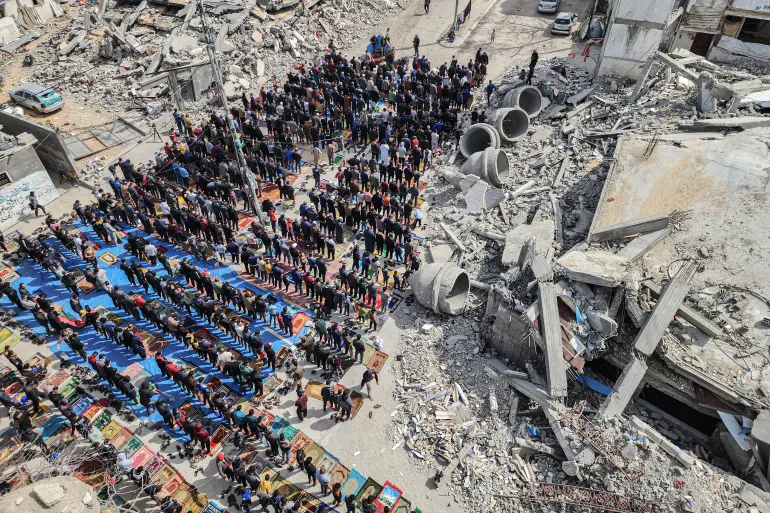Israel has announced plans to escalate its military operation in Gaza, with Defence Minister Israel Katz confirming the move to seize “large areas” of the Palestinian territory.
The expanded operation, which aims to establish “security zones,” will involve significant military action and mass evacuations of civilians.
In a statement released today, Katz emphasized that the objective is to “destroy and clear the area of terrorists and terrorist infrastructure.”
The announcement signals a new phase in the conflict, raising concerns over further displacement and civilian casualties.
Increased Military Action
The escalation comes amid reports of intensified Israeli airstrikes and shelling across Gaza, particularly in the Khan Younis region and along the border with Egypt.
On Tuesday night, local hospitals reported that at least 15 Palestinians were killed, with the Hamas-run civil defense agency confirming the recovery of 12 bodies, including children, from a bombed residence.
There are growing fears that Israel is preparing for a major ground offensive in southern Gaza.
This week, the Israeli military issued evacuation orders for approximately 140,000 residents of Rafah and certain parts of northern Gaza, further increasing displacement in an already devastated region.
Strategic Control and Buffer Zones
Over the course of the conflict, Israel has significantly expanded a buffer zone along Gaza’s periphery, displacing thousands of Palestinians from their homes. Additionally, the military has taken control of a corridor that effectively bisects the enclave.
The Israeli government has justified these moves as necessary security measures to prevent future attacks, but Palestinian groups and international organizations argue that they amount to territorial annexation and collective punishment.
Ceasefire Talks and Hostage Situation
The renewed offensive follows the collapse of ceasefire negotiations. Israel blames Hamas for rejecting a U.S.-brokered deal that sought to extend a truce and secure the release of the 59 Israeli hostages still held in Gaza. Hamas, on the other hand, has accused Israel of violating previous agreements and escalating violence.
Families of the hostages expressed outrage over the military’s decision, fearing that increased military action could endanger their loved ones.
The Hostages and Missing Families Forum, an Israeli advocacy group, stated they were “horrified” by the announcement and urged the government to prioritize diplomatic efforts to bring back the captives safely.
Worsening Humanitarian Crisis
The humanitarian situation in Gaza continues to deteriorate at an alarming rate. Since March 2, Israel has blocked all aid shipments into the enclave, marking the longest period of restricted humanitarian access since the war began.
The United Nations and other aid agencies have warned that the lack of food, water, and medical supplies is pushing the population toward catastrophic levels of suffering.
Last month, the UN was forced to scale down its operations in Gaza after Israeli forces reportedly killed eight Palestinian medics, six civil defense responders, and a UN staff member in a strike in southern Gaza.
Background of the Conflict
The current war erupted on October 7, 2023, when Hamas launched an unprecedented attack on Israel, killing approximately 1,200 people and taking 251 hostages.
In response, Israel launched a full-scale military campaign to dismantle Hamas and eliminate its ability to govern Gaza.
Since the start of the war, the Hamas-run health ministry in Gaza has reported more than 50,399 Palestinian deaths, with tens of thousands more injured. The figures include a significant number of civilians, further fueling international criticism of Israel’s military actions.
International Reactions and Concerns
The planned expansion of Israeli operations has drawn international concern, with human rights organizations and foreign governments calling for restraint.
Many are urging renewed diplomatic efforts to de-escalate the situation and prevent further civilian casualties.
Despite this, Israel remains firm in its stance, with Katz stating that “the only way to ensure long-term security” is through decisive military action.
Meanwhile, Hamas and other Palestinian factions have vowed to continue their resistance, setting the stage for further violence and instability.
As tensions rise and the humanitarian crisis deepens, the international community faces increasing pressure to intervene and push for a resolution to one of the most protracted and devastating conflicts in modern history.

